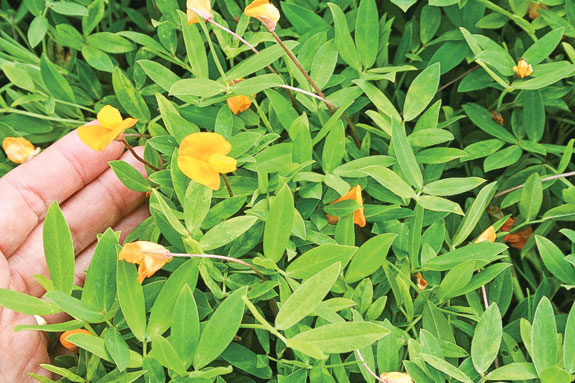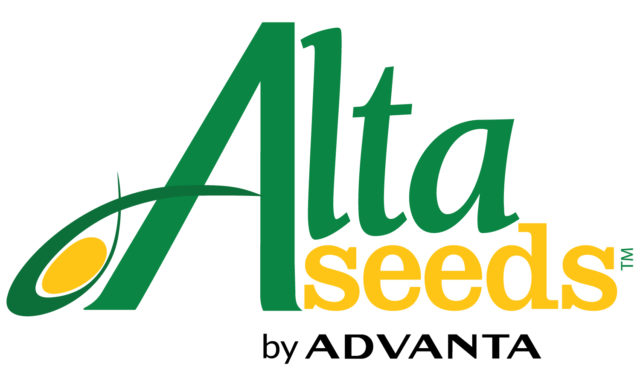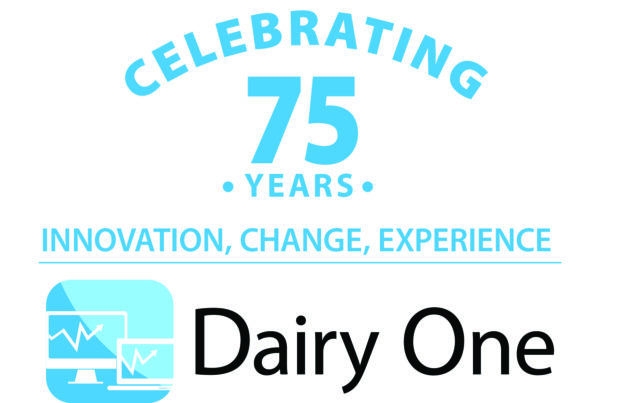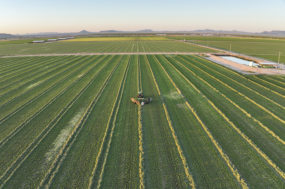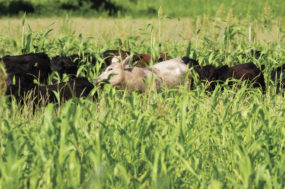Perennial peanut hay can be grazed or fed to a variety of animals, and it can support the high nutritional demands required by growing or lactating animals.
Rhizoma peanut is gaining popularity in the horse hay market because it is very palatable and a safe feed for horses.
This warm-season perennial is native to the northern areas of Argentina and Peru, which have latitudes equivalent to the southernmost portion of the United States. While most of the acreage is planted in Florida, it has an excellent potential for similar areas in southern U.S. climates.
Perennial peanut has sod-forming growth that can reach one-half to one-and-one-half feet tall. The leaves have four leaflets per leaf, and it has bright yellow flowers.
This legume does not produce many seeds, as opposed to its relative, the edible peanut (A. hypogaea L), and reproduces mainly from rhizomes growing in a thick mat just below the soil surface; a feature that gives this legume an effective persistence mechanism.
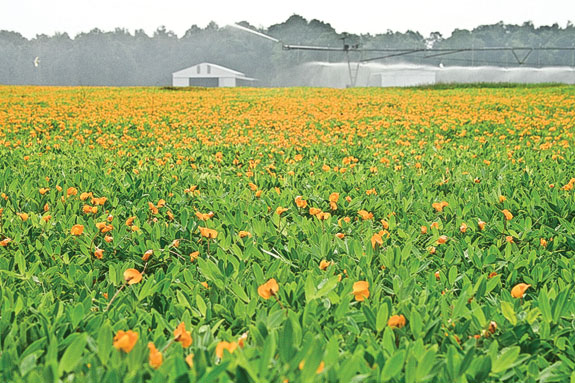
It grows best during the long, hot and humid days of summer; it is sensitive to frost. While the above-ground growth gets killed by the low temperatures, the rhizomes underground remain dormant until spring.
The uses include mostly hay, but it is also grazed. It can be used in monoculture or in association with warm-season perennials like bahiagrass or bermudagrass.
There are different varieties but the most planted is “Florigraze,” named after the grazing-tolerant attributes.
Nutritional value is high with crude protein ranging from 13 to 18 percent depending on maturity and leaf-to-stem ratio. In general, perennial peanut hay quality is good to excellent with digestible energy similar to alfalfa. Horses love to eat it from the beginning and they perform well when fed this hay. Because of the high palatability, horse nutritionists recommend its use as a supplemental feed for horses that have low activity.
In terms of adaptation, this legume is suited to well-drained, acid-infertile soils, such as the deep sands of Florida. Ideal conditions are soils with pH of 5.8 to 7.0. Under higher pH, it will develop iron-deficiency symptoms (light green color), and it will not persist in soils that are under saturation for extended periods greater than two weeks.
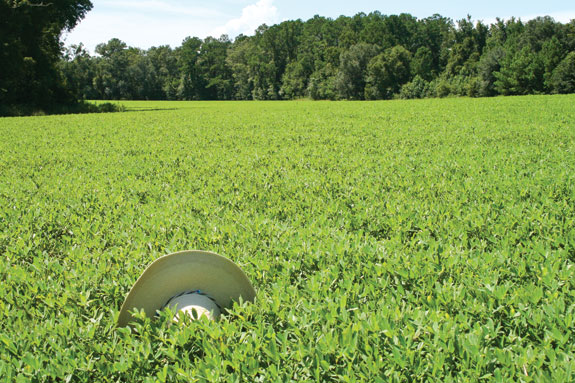
Perennial peanut production per cutting under favorable soil conditions is on average 2,000 to 3,000 pounds per acre. The seasonal total ranges from 7,000 to 10,000 pounds per acre.
Rhizoma peanut has proven to be excellent forage in terms of nutritive value. It is these characters of quality, production, persistence and variety of uses that makes this legume the ‘Queen of the South’.
For additional information on perennial peanut, please visit the ‘Forages of Florida’ webpage, http://agronomy.ifas.ufl.edu/ForagesofFlorida/index.php FG
References omitted due to space but are available upon request.
PHOTOS:TOP: Plants have four leaflets and bright yellow flowers.
BOTTOM: Perennial peanut production per cutting under favorable soil conditions is on average 2,000 to 3,000 pounds per acre.Photos courtesy of Yoana Newman.

Yoana Newman
Forage Extension University of Florida
